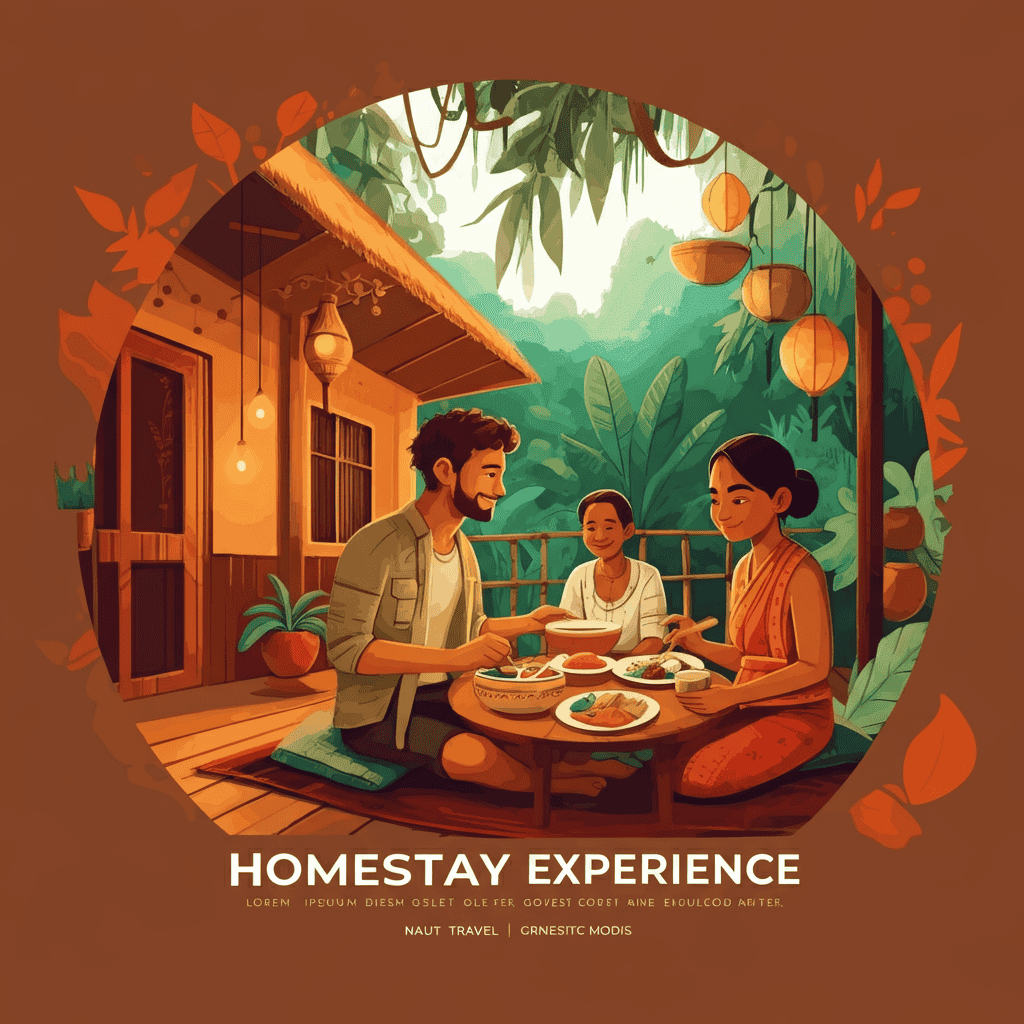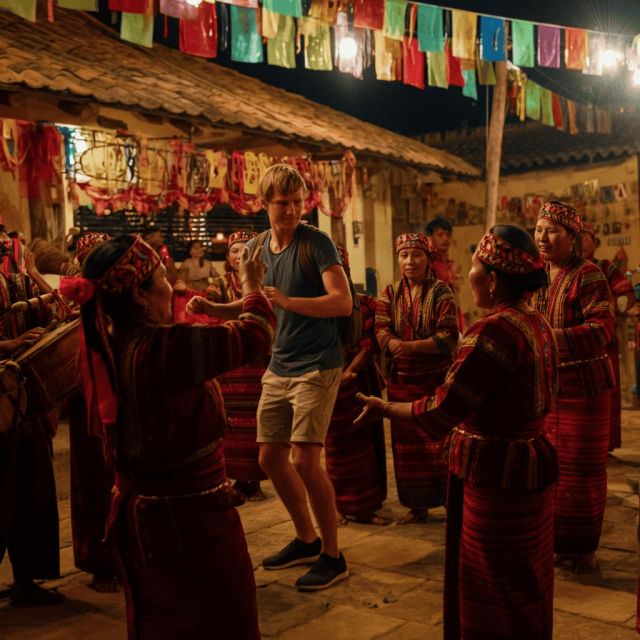Travel is more than sightseeing—it’s an opportunity to forge genuine connections, learn hidden stories, and celebrate traditions that shape a community’s identity. Cultural immersion travel goes beyond the guidebook, inviting you to step off the beaten path and experience the world through local eyes. Whether you’re savoring a home-cooked meal in a remote village, joining a centuries-old festival, or learning artisanal crafts from a master, these experiences create memories that linger long after your return flight.
In this guide, we share ten practical tips to help you travel respectfully and authentically. You’ll discover how to prepare before departure, engage meaningfully with hosts, honor customs, and leave a positive impact on the communities you visit. Get ready to transform your next vacation into a journey of mutual understanding and unforgettable cultural exchange.
1. Research Local Customs and Traditions Ahead of Time
Before you step onto foreign soil, invest time in understanding the customs, etiquette, and social norms of your destination. Read travel blogs, guidebooks, and local tourism websites. Watch documentaries or interviews about regional history, religious festivals, and community values. By familiarizing yourself with key greetings, dress codes, and behavioral expectations, you’ll demonstrate respect and avoid inadvertent faux pas. This proactive approach also deepens your curiosity—transforming first impressions into meaningful conversations upon arrival.
2. Learn Basic Phrases in the Local Language
Even if you’re not aiming for fluency, mastering a handful of phrases like “hello,” “thank you,” and “please” can go a long way. Locals appreciate genuine effort and are often eager to teach you more. Apps and flashcards make it easy to practice on the go. Greeting someone in their native tongue establishes goodwill, opens doors for conversation, and helps you become more immersed in everyday life—from haggling at markets to sharing stories over a cup of tea.
3. Choose Homestays and Community-Based Accommodations

Rather than staying in an anonymous hotel, seek out homestays, guesthouses, or eco-lodges managed by local families. These options not only support the local economy but also create immersive opportunities—like helping prepare meals, learning family recipes, or joining evening gatherings. Community-based tourism initiatives often include guided cultural activities, traditional music performances, and craft workshops run by local artisans, ensuring your travel dollars benefit the people you meet.
4. Participate in Festivals and Ceremonies
Festivals offer a window into a culture’s heart and soul. From harvest celebrations to religious processions, these events blend music, dance, food, and rituals that have been practiced for generations. Plan your trip around a local festival calendar and observe respectfully: follow designated areas for visitors, ask permission before photographing, and adhere to dress guidelines. Your enthusiastic participation is often rewarded with warm smiles and invitations to join the festivities.
5. Take Hands-On Workshops with Local Artisans
Learning a traditional craft—whether pottery, weaving, wood carving or cooking—engages all your senses and connects you to a region’s artistic heritage. Many villages host half-day or multi-day workshops led by village elders or master craftsmen. Through guided instruction, you not only gain a new skill but also hear stories passed down from one generation to the next, enriching your understanding of the community’s cultural fabric.
6. Dine with Locals and Explore Street Food Safely
Food is culture on a plate. Sharing meals in a local home or sampling street-food stalls offers authentic flavors you won’t find in tourist restaurants. To stay safe, eat where you see long lines of residents, choose freshly cooked dishes, and use hand sanitizer. Be open to unfamiliar tastes—from fermented specialties to regional spices. As you bond over food, you’ll uncover personal cooking tips and the origin stories behind each traditional recipe.
7. Respect Religious Practices and Dress Codes
Many cultural experiences occur in or around sacred spaces. Always inquire about appropriate attire—such as covering shoulders, knees, or removing shoes—and follow local rituals like bowing or refraining from photography in restricted areas. Observing these guidelines shows reverence for spiritual traditions and ensures you’re welcomed rather than seen as a disruptive observer.
8. Volunteer or Engage in Community Projects
Meaningful immersion often includes giving back. Research trusted organizations offering short-term volunteer opportunities in education, conservation, or infrastructure. Even a few days of painting a school wall, planting trees, or teaching English can create genuine exchanges with residents. Approach volunteer travel with humility: seek projects designed and led by locals, listen to community needs, and commit to respectful collaboration rather than one-sided “aid.”
9. Embrace Slow Travel and Extended Stays
Rather than rushing through dozens of cities, choose to linger in one place and build relationships over weeks or months. Rent a homestay, enroll in a language class, shop weekly at the same market stall, and learn your hosts’ routines. Over time, you’ll transition from tourist to temporary resident—sharing milestones like birthdays or festivals. This slow-travel model fosters deeper connections and a fuller understanding of daily life beyond tour-bus itineraries.
10. Reflect, Share Respectfully, and Leave a Positive Impact
After each day of cultural discovery, take time to journal your observations—what surprised you, what touched you, and what questions remain. When posting on social media or blogging, highlight local voices, avoid stereotypes, and credit your hosts by name. Consider small gifts of appreciation—locally made crafts or supplies that support artisans. By reflecting respectfully and sharing authentically, you extend the benefits of your journey to a wider audience and honor the communities that welcomed you.
11. Practice Sustainable Travel to Protect Local Cultures
Sustainable travel goes hand-in-hand with cultural immersion. By choosing eco-friendly accommodations, minimizing waste, and supporting locally owned businesses, you help preserve the cultural and environmental integrity of the places you visit. Respect for local traditions includes respecting the land, heritage sites, and community resources. Whether you’re hiking through sacred landscapes or joining village activities, practicing sustainable travel ensures your experiences remain positive—for both you and future travelers.
Conclusion
Cultural immersion travel transforms vacations into life-changing adventures. By approaching each destination with curiosity, humility, and respect, you’ll forge genuine connections, learn hidden traditions, and gain fresh perspectives on the world. From sharing a family dinner in a countryside home to celebrating vibrant festivals with new friends, these immersive experiences create memories that endure forever. So pack your heart as well as your suitcase, open yourself to new ways of living, and prepare for the most rewarding journey of your life.
Learn more about: Adventure Travel Unleashed: Your Guide to Epic Thrills Around the World














